I took these photo of Forrestfield
with the help of my friend which is an ARHS WA member..
Being a former employee
of Westrail, he told me a bit of history and rules regarding of Forrestfield
Marshaling Yard. He said that it is the only place in Perth to have a turntable
for standard gauge trains. It was once a busy yard. But nowaday, its activites
were cut by half, when the narrow gauge part of marshalling yard was closed
in late 1990s. Although it still has some narrow gauge lines for maintenance
purpose, as there is a big locomotive factory in the marshalling yard.
The yard was once jointly
owned by Westrail and Australian National Railway. Nowaday it's owned by Australia
Western Railway (AWR), although some passenger train can be seen maintained
here.
I went there first at night,
with him, and it was very quiet. It was almost like a ghost town! All of the
night shots were taken during that time.
Then all of daytime shots
were taken on Sunday afterward. It was nice! If you wished to know how does
the photo looked like, then browse around!
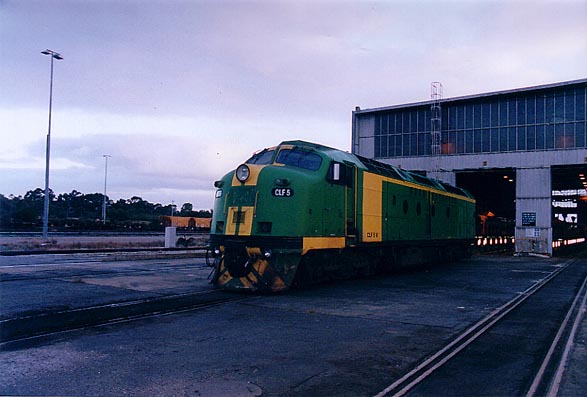 |
CLF 5 sit idle in front of EDI plant
in Forrestfield in one afternoon.
CLF used to be a CL class loco. And
the loco is actually an Australianized EMD F45, which was redesigned by
Clyde engineering, and equipped with 'bulldog nose' commonly found in
EMD E or F-class loco.
And one thing for sure, this loco is
smaller than F45!
|
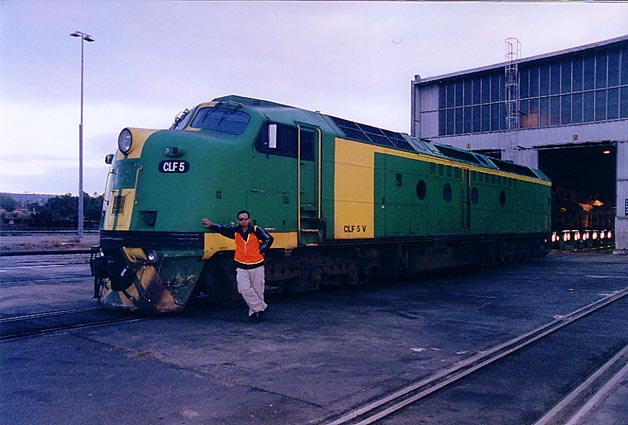 |
Me standing in front of CLF 5.
Cool, isn't it?
|
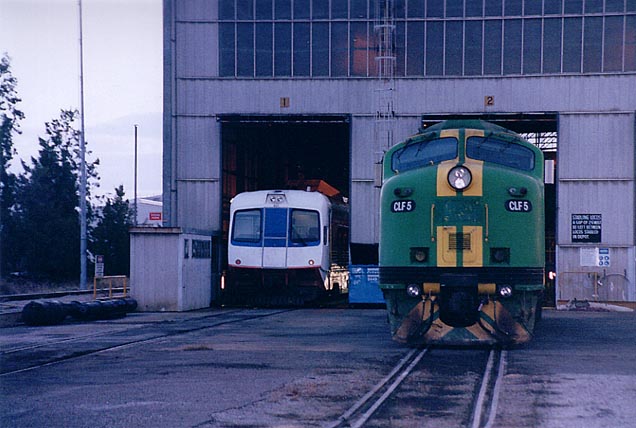 |
Nose
view of CLF 5, with Prospector railcar in EDI shed in the background.
|
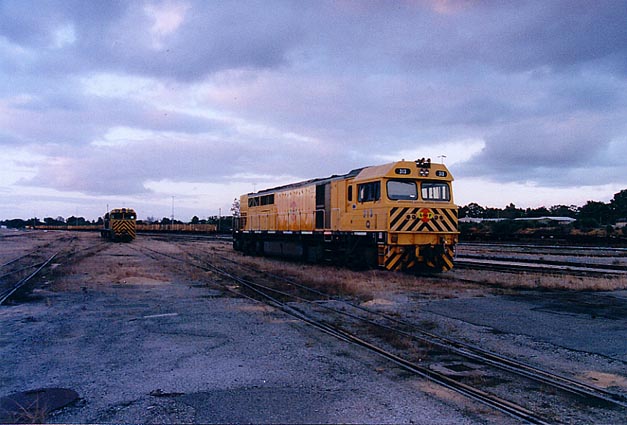 |
A Q-class locomotive sit idle in front
of P-class locomotive.
Just for reminder, Q is a GM loco,
whereas the P is GE.
|
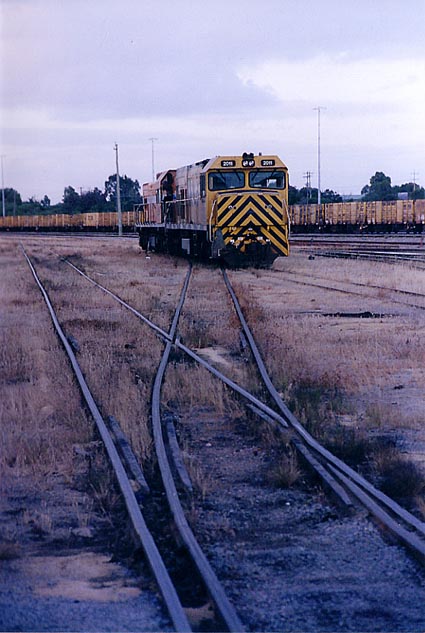 |
A closer look of P-class loco with
(probably) a DA-class loco behind.
The point in front of me is where the
1067mm and 1435mm separated. Both of the locos are narrow gauge locos.
|
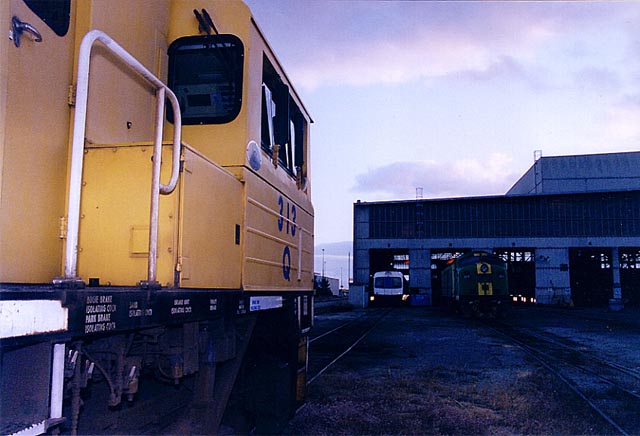 |
A Q-class loco with EDI plant and two
rolling stock in front of it. This loco was built in the factory in front
of it!
The overhead panel of Q-class cabin
is partially visible.
|
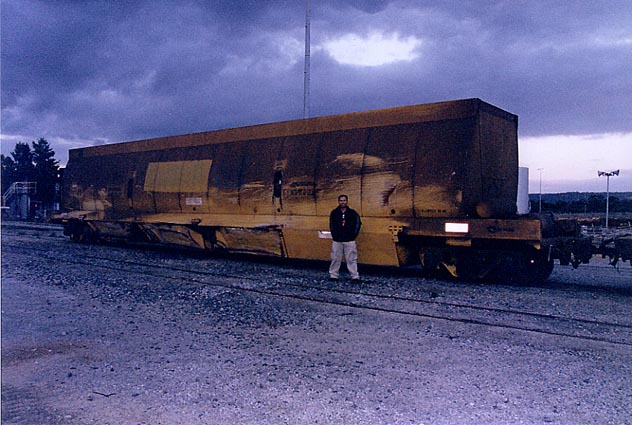 |
Me standing in front
a huge woodchip carriage. You may think, how could a 1067mm rolling stock
so large like this?
The secret is: the rolling stock's
size is actually similar with a medium-sized passenger car.
|
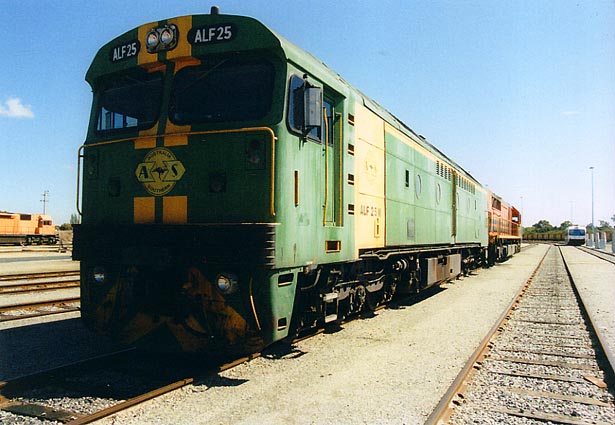 |
ALF-class loco resting
in Forrestfield loco siding with Q-class loco behind.
A Prospector railcar can be seen in
the background.
|
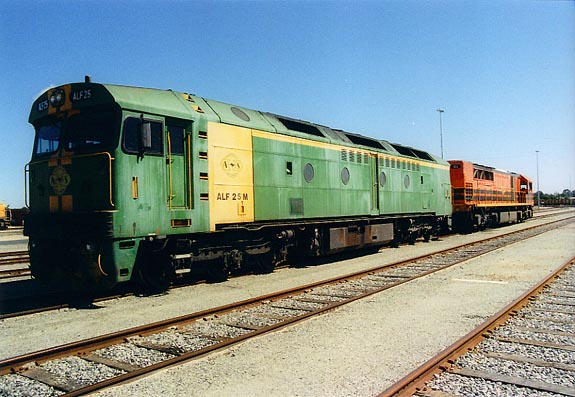 |
A wider view
of ALF and Q-class loco. |
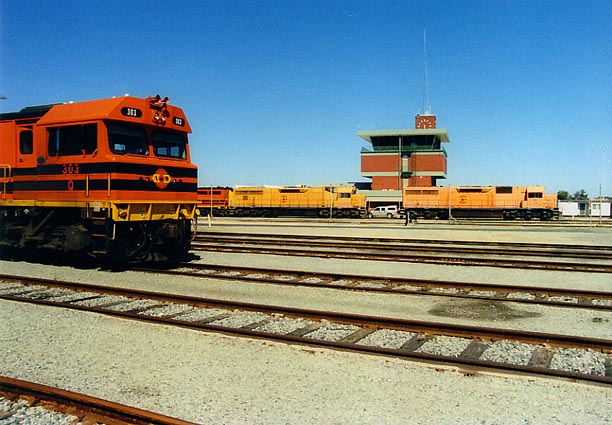 |
Nose view of
Q-class loco, with three L-class loco in the background. |
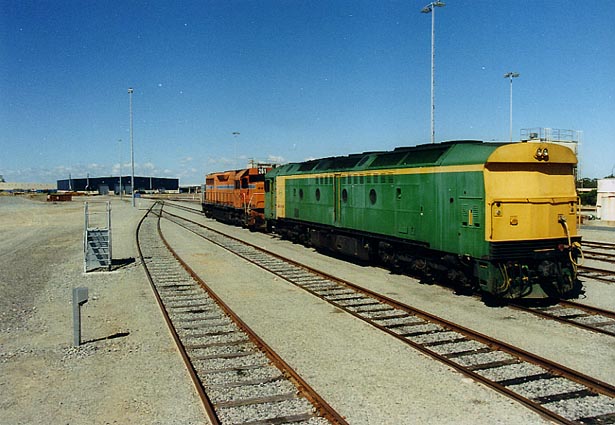 |
A back view of ALF-class loco. But
wait! Who stole the driving cab???
The ALF-class (or previously AL-class),
used to have two cabs. But when it was modified, back in 1990s, it was
decided to blanked-off the B-cab, to save money and weight, and as twin
cab is unecessary for long distance journey.
|
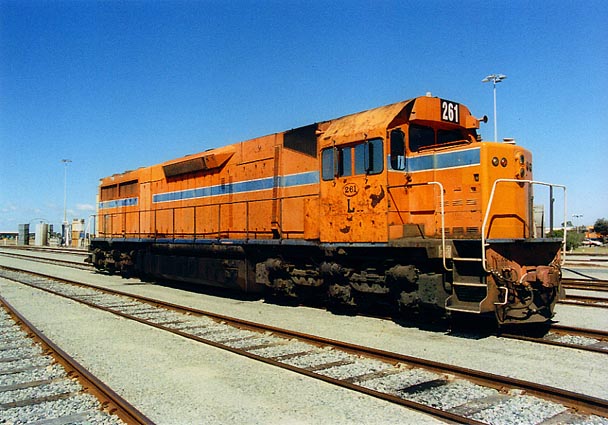 |
A closer look
of, rather dirty, L-class loco. This loco is Australianized SD40 loco. The
most obvious difference with their American sister is that L-class loco
has an angled front window. |
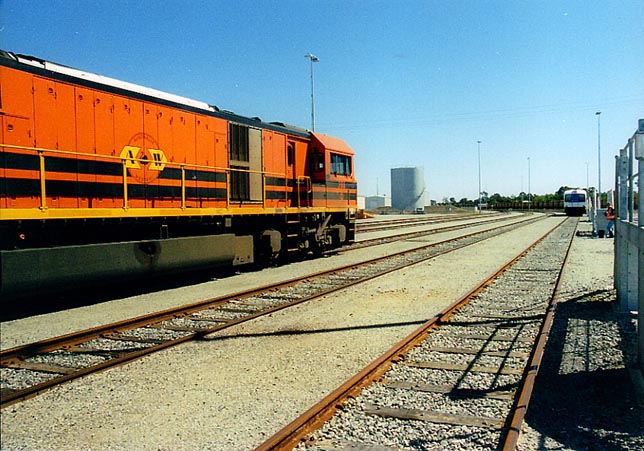 |
A Q-class loco resting between duties.
A 'Prospector' railcar can be seen in the distance.
The person on the right hand of the
photo is my friend who took me there.
|
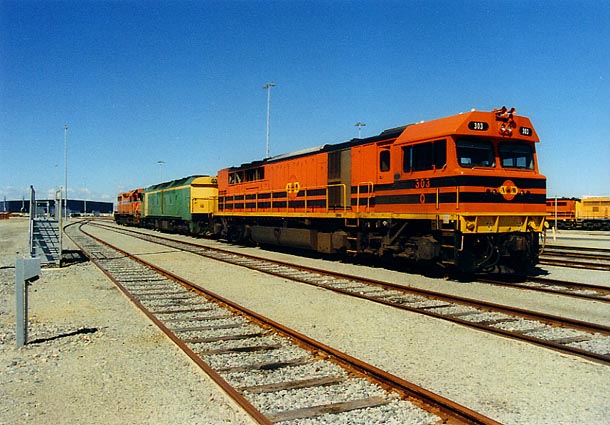 |
Now you can see all of the locos! Q-class
is leading, followed by ALF behind it, and L-class further.
The reason behing the use of Genesee
and Wyoming livery on Q-class, is that because the owner company (AWR)
is owned by Genesee and Wyoming of USA.
|